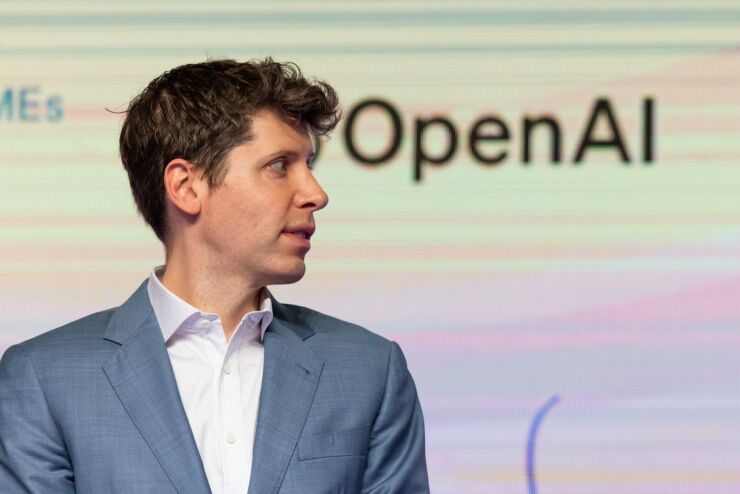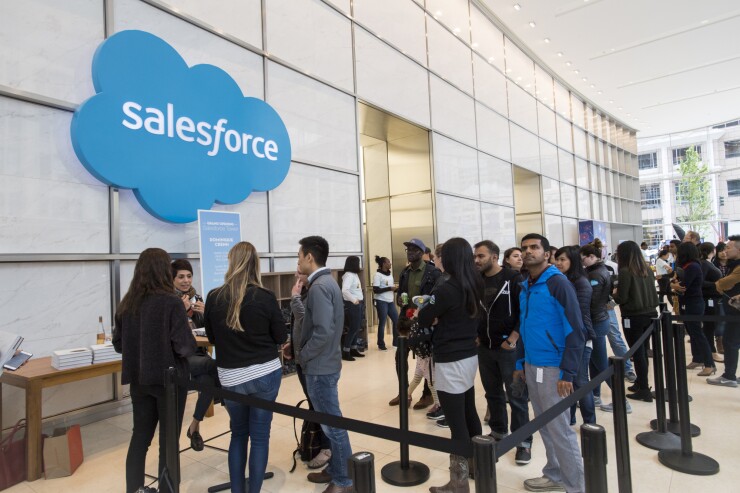The use of artificial intelligence promises increased efficiency, less administrative backlog and reduced human error. Employees, however, remain divided on whether the additional help could end up costing them their jobs.
Organizations ranging from
Data released last year by
Read more:
According to
"Employers have to acknowledge that employees' anxiety around AI is reinforced by various sources," Dimitris Tsingos, co-founder and president of workplace technology vendor Epignosis, said in an interview with Employee Benefit News'
Experts say that while job losses are inevitable as redundant roles are eliminated, that doesn't prevent those same employees from being placed in more nuanced positions.
"What we are seeing is that domain experts in our own operations, as well as those of our clients, are moving from the stages of process execution to codifying their knowledge and maintaining that knowledge for AI to work on an ongoing basis," said Abhishek Mittal, vice president of customer information management and operational excellence for Wolters Kluwer Financial & Corporate Compliance.
Read more:
Learn more about how employers are working to integrate AI as a tool for company and employee growth.

How Nava Benefits' partnership with Open AI is simplifying healthcare
Benefits brokerage Nava Benefits is enlisting the help of Open AI to launch its new artificial intelligence-powered benefits assistant, which aims to guide consumers through individual
The tool is not designed to take the place of human representatives, which are still available to consumers for questions on claims or billing, but rather to address the comprehension gap and evaluate which problems require further intervention.
"AI is really good at assessing that initial [problem]," Brandon Weber, co-founder and CEO of Nava Benefits, said in a prior interview with EBN's
Read more:

Perceived benefits or not, employees don't want AI in the workplace
Data from a
Further findings showed that a separate 45% will significantly impact their job security in the future, and 38% of workers feel they will have to retrain for a new position following their current role being outmoded by the introduction of AI.
"AI is transforming industries at a rapid pace, which causes concern among some who feel unprepared or left behind. … The less access people have, the greater the qualms," Graham Glass, founder and CEO of CYPHER Learning, said in an interview with EBN's
Read more:

Supernormal's campaign to help chatbots jump off the (web)page
Leaders of Supernormal, the New York-based AI-powered meeting platform, are opening the doors for clients to take advantage of the company's suite of conversational AI products and create a customized version of their own.
Once the fintech firm finalized its AI companions and determined that they were able to sit in on meetings and engage with human employees through questions and conversation, it debuted a customizable option where current users can choose to build their own.
"We believe in the future where almost everyone has voice agents on calls that feel like you're talking with a human and can do all sorts of incredibly useful things," Colin Treseler, founder and chief executive of Supernormal, said in an interview with EBN's
Read more:

Masterclass at Work recommends adding Gen AI to the workplace
Roughly 70% of Gen Z professionals surveyed by software company Salesforce responded that adding generative artificial intelligence capabilities to educational resources would dramatically
Experts with Masterclass at Work generative AI can be used to educate younger professionals, giving them a sense of independence when navigating the workplace while not being overreliant on other staff.
"Gen Z is having trouble adapting to the culture of work because they entered into the workplace at a time of high volatility, coming out of the pandemic with offices shifting between different work models," John Scott, head of learning and design at workplace educational platform MasterClass at Work, said in an interview with EBN's
Read more:

AI is Salesforce's answer to closing the skill gap
Salesforce announced in September that it will make its existing suite of premium
The campaign furthers this effort through the
"We know people learn in different ways, which is why we wanted to offer both online and in-person upskilling opportunities," Relina Bulchandani, leader of Salesforce's real estate and workplace services team, said in an interview with EBN's





